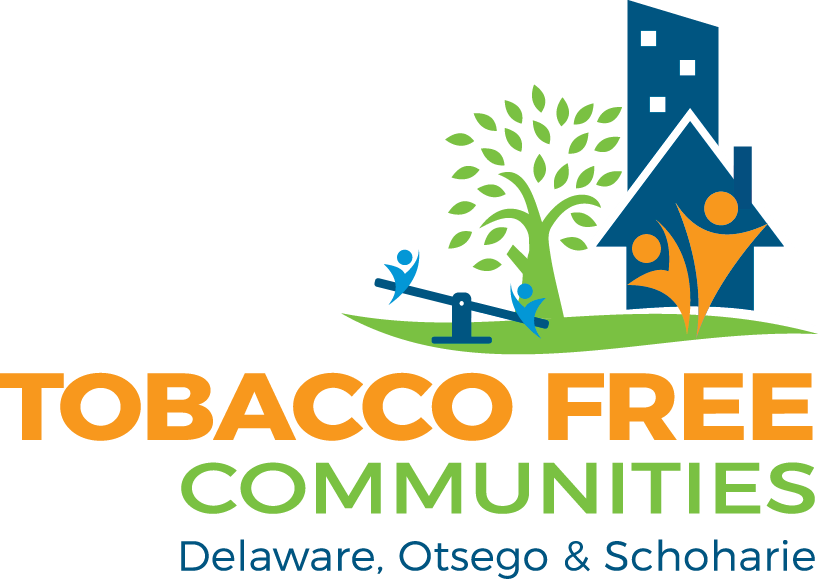Campus Clean-up
Campus Clean-up Uncovers Pervasive Cigarette Butt Litter
Advancing Tobacco Free Communities of Delaware, Schoharie, and Otsego Counties (ATFC-DOS) participated in the 2018 SUNY Cobleskill Campus Clean-up Day on Thursday, April 26. Five student volunteers assisted new Reality Check/Youth Engagement Coordinator Bonnie Peck with the clean-up by flagging tobacco waste including cigarette butts, cigarillo tips, and even e-cigarette “pods” from areas around Wieting Hall and Van Wagenen Library. Students flagged and photographed tobacco litter and then disposed of it. Timothy Ramirez, Bridget Kennedy, Emma Rose Wegner, Nicole Gugulski, and Rachel Butler are to be commended for participating in the effort.
While SUNY Cobleskill does have a tobacco policy that requires students, faculty, staff and visitors to use tobacco only in designated areas, the students working on the clean-up day discovered a large volume of tobacco litter near entrances to the buildings and on the ground in a 30-foot radius of the designated smoking gazebo.
Tobacco use is not only a health issue, but an environmental issue as well. Cigarette butts are the number one littered item worldwide – 1.69 billion pounds annually. Since the 1980’s, cigarette butts have consistently comprised 30-40% of all items collected in annual international coastal and urban cleanups. Cigarette waste can leach toxic chemicals into the environment, leading to land, water, and air pollution. Cigarette filters are made from cellulose acetate, a plastic that, though technically biodegradable, only degrades under severe biological circumstances, such as when filters collect in sewage after nine months or more. Cigarette butts tossed on the ground do not biodegrade.
Students, faculty and staff at all college campuses can help build a healthier campus community where many live, learn, work and play and combat the negative influences of the tobacco industry. ATFC-DOS educates the community and decision makers, mobilizes community members around the problems that tobacco addiction causes in local communities, and helps decision makers understand the types of choices that they have to address these problems.



